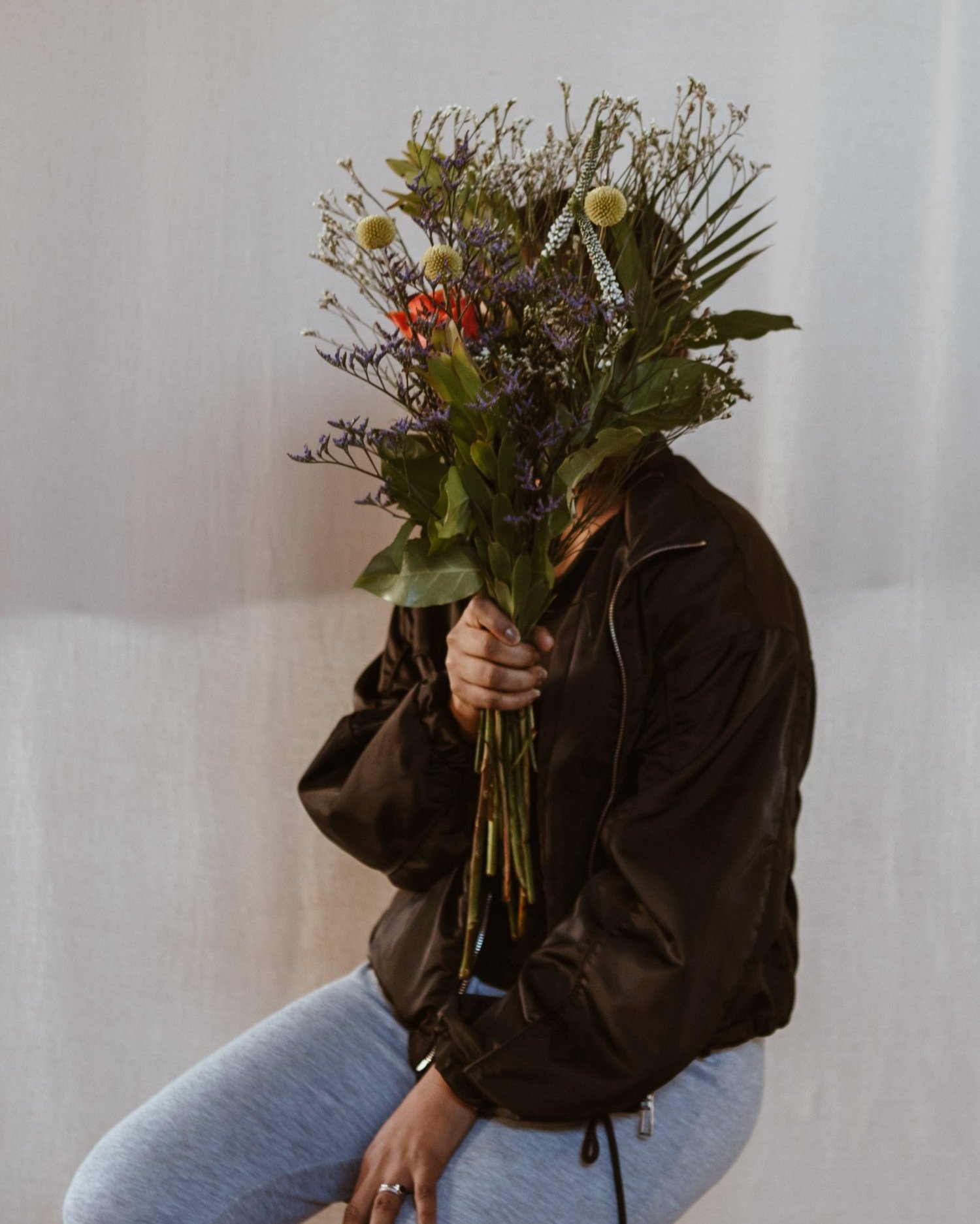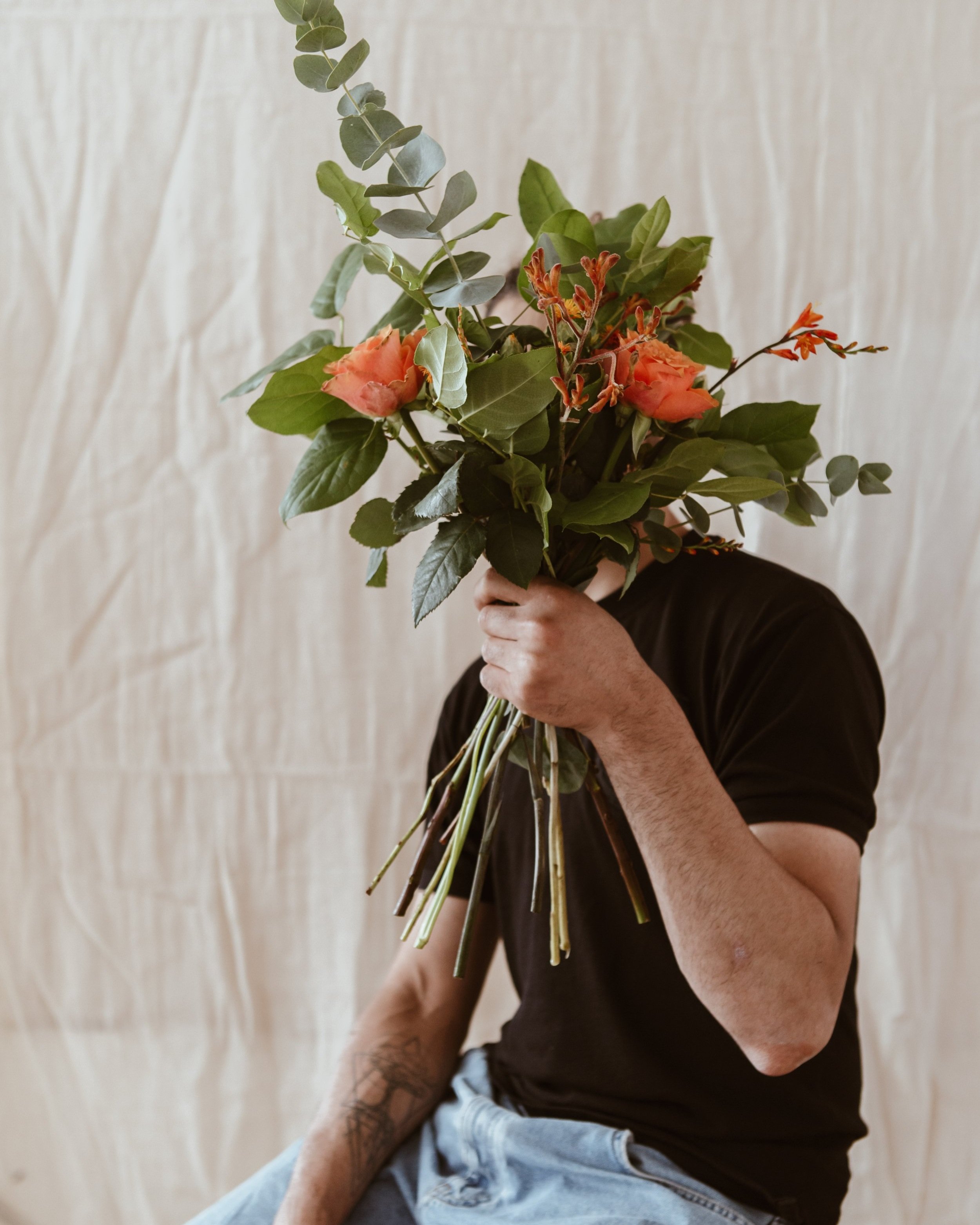In Limbo
In Limbo exhibition is a collaboration between Natasa Leoni (photographer) and Hermione Berendt who are both long-term volunteers and campaigners in the charity and migrant solidarity sector. Many people do not know the realities of asylum hotels, so they wanted to spotlight the experiences of adults and children living in hotel accommodation in their city
Because of the nature of the project topic and because people are more vulnerable due to their unstable immigration status, the subjects have chosen to protect their identities. The flowers covering their faces symbolise the life, beauty and softness of the human beings behind the image. They also create a powerful juxtaposition to the harsh realities of people’s experiences in the hotels and the experiences which led them to flee their countries.
Alongside the anonymous portraits they have shared interviews with the subjects and hard-hitting facts and figures about the supposedly ‘temporary’ accommodation, the asylum system and its impacts on people's health and wellbeing.
Acknowledgements
Georgia Lewis. Sanctuary on Sea. Umit Ozturk. Brighton and Hove Libraries. Everyone who participated in the project. Deema Worthington. Brighton and Hove Migrant Support Network for all the work they do to counter the UK Government’s hostile environment.















